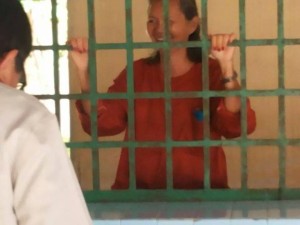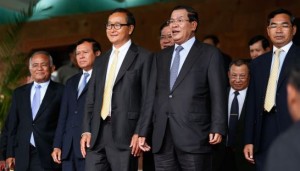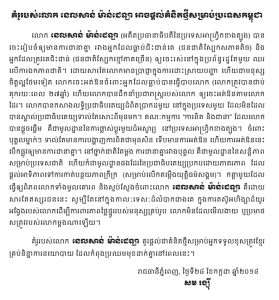After publishing the article “40 years of memoir, story telling, healing, and moving forward for all Cambodians“, we wish to share the comment from MP Mu Sochua and the comment from the author, Mr. Soph0an Seng as following:
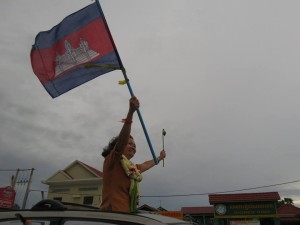 You have my deepest appreciation and respect for your invaluable compilations and your own articles of all the painful memories relived and told by those who can not forget and forgive. I read them all with the vivid images of my own parents and blind grand-mother among the millions who believed in the lies of the Khmer Rouge and left the city as they were told. I did not live with the Khmer Rouge regime but as a Khmer woman, the suffering of not saying goodbye to my beloved parents and to my grand-mother with whom I shared my adolescent years have been with me for the past 40 years.
You have my deepest appreciation and respect for your invaluable compilations and your own articles of all the painful memories relived and told by those who can not forget and forgive. I read them all with the vivid images of my own parents and blind grand-mother among the millions who believed in the lies of the Khmer Rouge and left the city as they were told. I did not live with the Khmer Rouge regime but as a Khmer woman, the suffering of not saying goodbye to my beloved parents and to my grand-mother with whom I shared my adolescent years have been with me for the past 40 years. Sent from my iPad
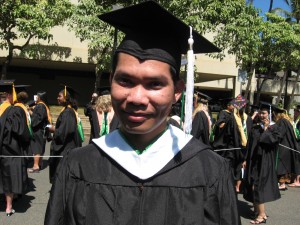 I am greatly complimented by partnering healing processes through telling my story and hearing your story: I do believe in “story telling” to accumulate fresh first hand information and to heal Khmer’s mental illness and PTSD.
I am greatly complimented by partnering healing processes through telling my story and hearing your story: I do believe in “story telling” to accumulate fresh first hand information and to heal Khmer’s mental illness and PTSD.

